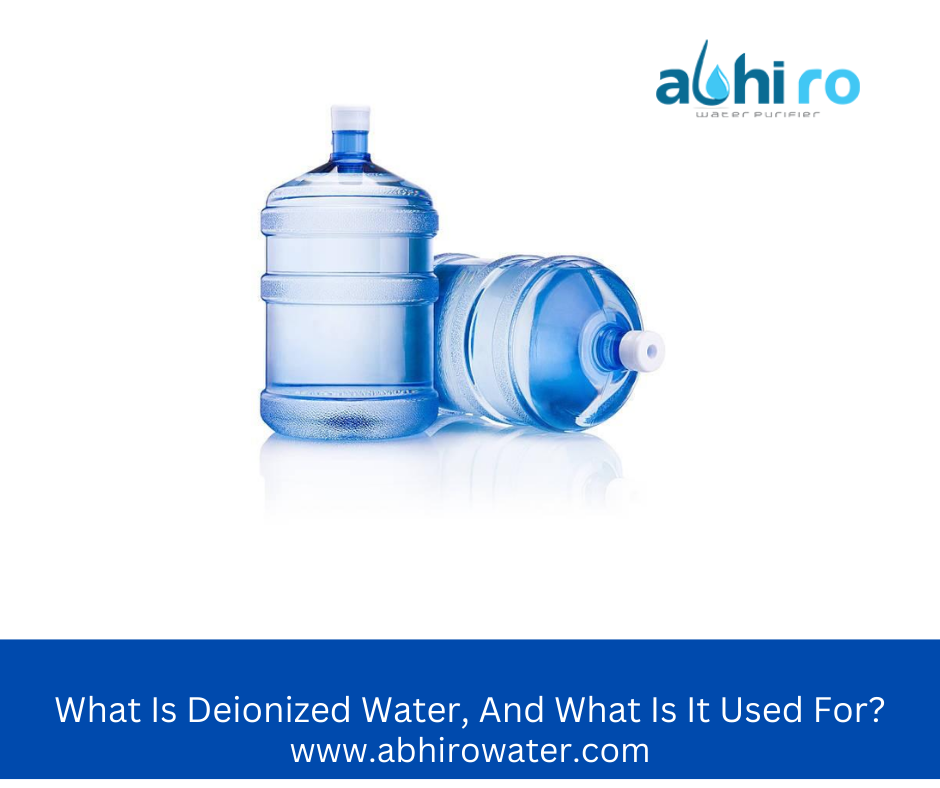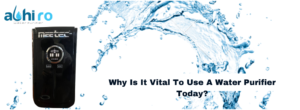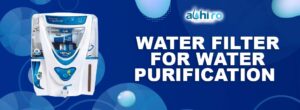
If you want to know what is deionized water, and what is it used for, then stay tuned till the end. Deionized water is water that has been purified of all ionic material. This means that it contains no minerals, salts, or other chemicals dissolved in it.
Deionized water is used for a variety of purposes, most notably in the pharmaceutical and electronics industries. It is also sometimes used as a drinking water source.
While there are some benefits to using deionized water, there are also some potential drawbacks that should be considered before making a decision about whether to use it or not. Let’s take a closer look at what deionized water is and what it can be used for.
One common method is to use an ion-exchange resin, which binds to the ions and then exchanges them for other ions. This process can be repeated until all of the ions have been removed from the water. Deionized water can also be made by reverse osmosis, which uses a semipermeable membrane to remove the ions from the water.
What Is Deionized Water, And What Is It Used For
Deionized water, also known as demineralized or DI water, is a type of purified water that has had the ions removed. It is produced by passing regular tap or distilled water through an ion exchange process.
This removes all dissolved solids and other impurities to produce high-purity water with a neutral pH level. Deionized water is used in many industries and applications where highly pure water is required.
Common uses for deionized water include automotive cooling systems, humidifiers, aquariums, steam irons, photography dark rooms and laboratories. Many industrial processes such as power generation plants, semiconductor fabrication plants and oil refineries require deionized water for their operations.
In addition, it is used in some medical facilities to clean medical instruments, prepare antioxidants and other solutions. It is also used in the manufacture of cosmetics, pharmaceuticals and electronic components.
Deionized water has a wide range of uses across many industries due to its superior purity level. Its non-conductivity makes it ideal for cleaning sensitive electrical equipment.
The absence of ions also reduces any contamination from metal deposits that may occur when using regular tap or distilled water. Deionized water can be further treated with filters or UV lights to remove any remaining impurities if required by an application or process.
What Is The pH Of Deionized Water?
Most people have heard of pH levels, and know that they are important for things like monitoring the acidity of soil or assessing the risk of skin irritation. However, not everyone is familiar with the specifics of what pH levels mean.
In short, pH is a measure of how acidic or basic a solution is. Deionized water, which is water that has had all of its minerals removed, has a pH level of 7. This means that it is neutral, and falls right in the middle of the pH scale.
Water with a higher pH level is basic, while water with a lower pH level is acidic. Though the human body is mostly water, our blood has a slightly higher pH level, around 7.4.
This is because our bodies have evolved to function best within a very specific range of pH levels. As such, it is important to be mindful of the pH level of any liquids that we consume, as even a small change can have a big impact on our health.
What Is A Deionized Water System?
Deionized water systems (DI) offer a reliable and affordable way to create pure, clean water. A DI system works by removing ions from regular tap water to produce deionized water that is free of impurities.
This type of purified water is often used in commercial industries such as laboratories, semiconductor manufacturing, and medical facilities where water purity is essential for product quality or safety.
To achieve the desired level of purification, a DI system uses several stages of filtration including carbon filters, reverse osmosis membranes, and ion exchange resins. The end result is an ultra-pure form of high-purity water with reduced levels of contaminants like heavy metals and other organic compounds.
In addition to providing highly purified drinking water, a DI system can also be used to clean surfaces and equipment. By removing contaminants from the water supply, this type of system can help keep home and business environments free of harmful pollutants.
If you’re looking for a reliable way to produce high-quality purified water, then a deionized water system is an ideal choice. With its ability to remove impurities with minimal effort and cost, it’s no wonder that these systems have become so popular in recent years.
The 8 Main Uses Of Deionized Water
Though you may not realize it, deionized water plays an important role in many aspects of our lives. Here are 8 of the most common uses for this type of water:
- Automotive Manufacturing – Deionized water is used in the production of cars and other vehicles. It helps to clean and rinse car parts during the manufacturing process.
- Pharmaceutical Manufacturing – Deionized water is used in the production of many medications and medical supplies. It helps to keep products sterile and free from contaminants.
- Food And Beverage Processing – Deionized water is often used in the food and beverage industry. It helps to clean and sanitize food-related products.
- Electronics Manufacturing – Deionized water is used in the production of electronic components and devices. It helps to remove impurities that could damage delicate electronic components.
- Power Plant Cooling – Deionized water is used in power plants to help cool down equipment and prevent overheating.
- Laboratory Testing – Deionized water is often used in laboratories for testing purposes. It helps to ensure accuracy and prevent contamination.
- Cleaning Products – Deionized water is sometimes used as an ingredient in cleaning products. It can help to remove stains and dirt more effectively than regular tap water.
- Drinking Water – In some cases, deionized water may be used as a safe alternative to drinking tap water. This is because it has had all of the impurities removed, making it much purer than tap water.
FAQs: What Is Deionized Water, And What Is It Used For
Q 1: Does Deionized Water Taste Good?
A 1: Although deionized water can be drunk, it should be emphasized that not all of it is safe for general consumption. To make sure your deionized water is completely safe to drink, always read the label!
Q 2: What Makes Deionized Water Unique?
A 2: Water that has had all of its mineral ions, including sodium, iron, calcium, copper, chloride, and sulfate, removed is deionized water, often referred to as demineralized water. It tastes delicious and is safe and hygienic. Additionally, it is free of chemicals and toxic substances.
Q 3: What Is The Shelf Life Of Deionized Water?
A 3: Despite being pure, RO/DI water only lasts for two years. This is due to the fact that over time, the container used to keep RO/DI water releases metals or artificial nutrients. Additionally, occasionally the filter will let algae or fungi through. Algae or fungi can grow in RO/DI water that has been exposed to light.
Q 4: Are Distilled Water And Deionized Water Equivalent?
A 4: Boiling distillate water produces purified water that is free of pollutants and contaminants like chlorine and dissolved solids. Like distilled water, deionized (DI) water is extremely pure. Deionized water is different from regular water because it has had all of its dissolved mineral particles removed.
Wrapping Up
Deionized water is a type of purified water that has all of its ions removed. This makes it an ideal choice for many different applications, including laboratory work, car washes, and more.
If you’re looking for a high-quality water source that can be used for a variety of purposes, deionized water may be the perfect option for you. Contact us today to learn more about this versatile product and how it can benefit your business.
Read more How To Remove Lead From Water









